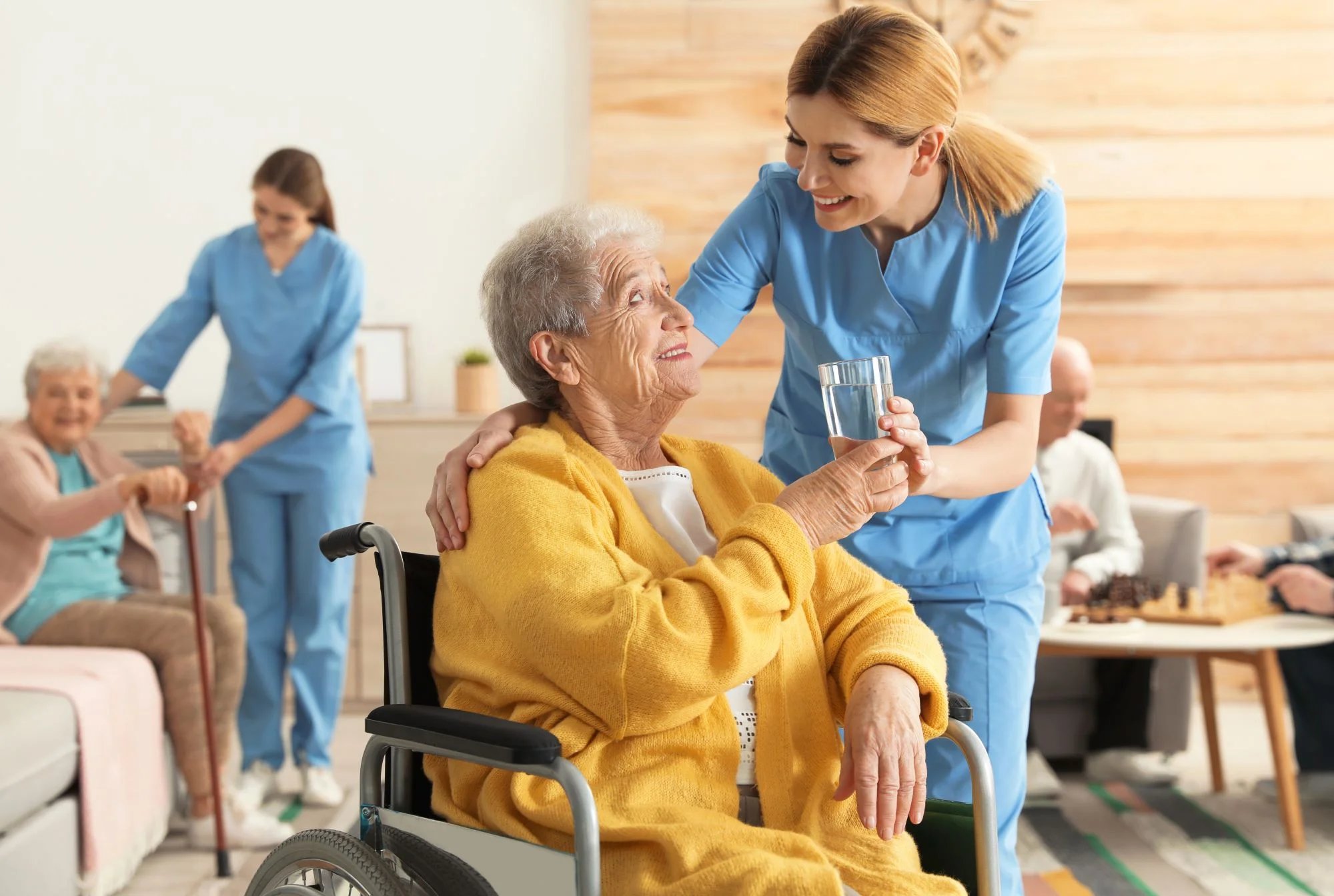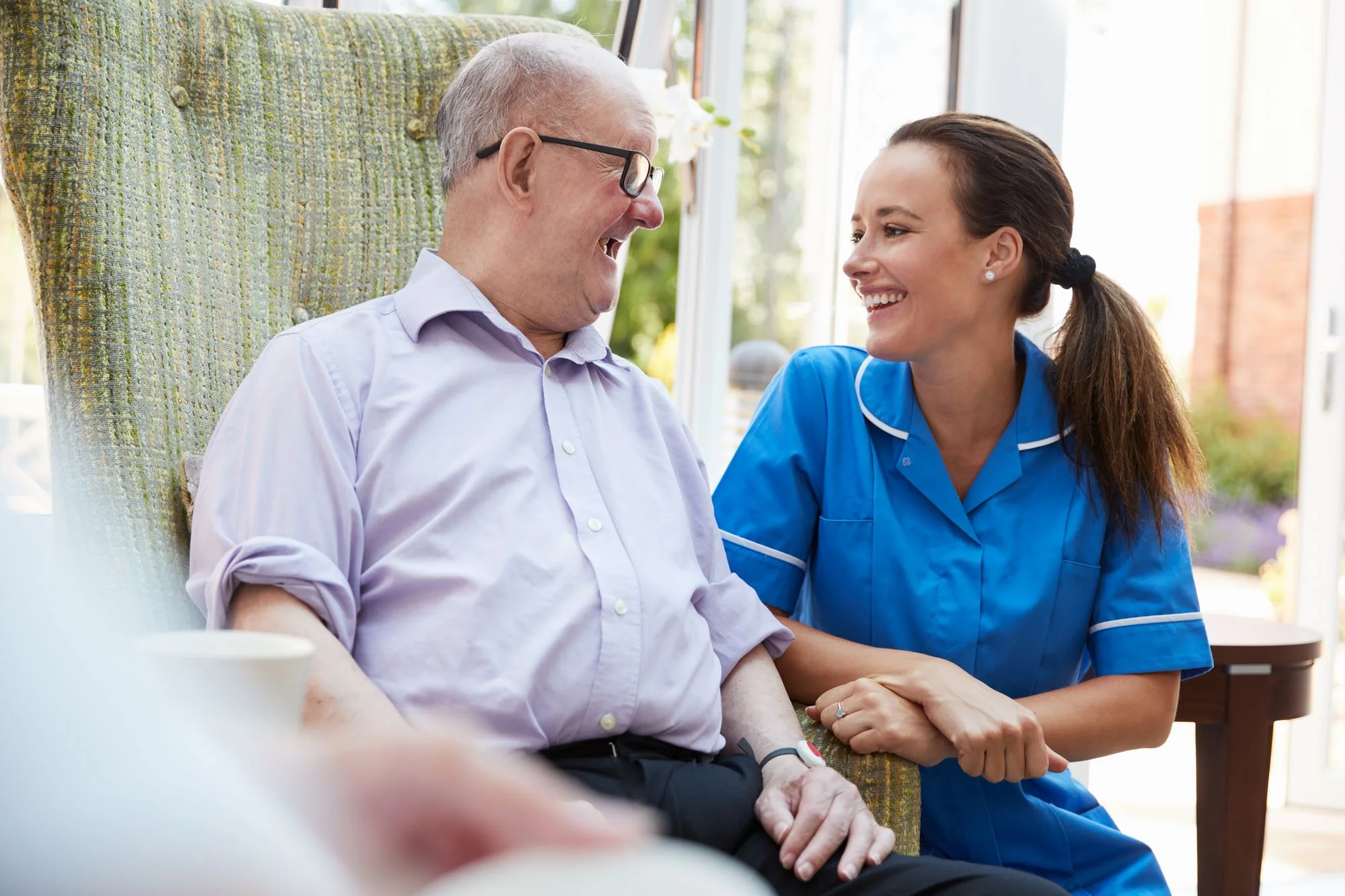Ensuring the nutritional and hydration needs of care home residents are met

As Nutrition and Hydration Week (11th to 17th March) is underway, it's crucial to highlight the importance of ensuring that older adults in care are properly hydrated and have access to the necessary nutrients for a healthy and satisfying life.
Are older adults more at risk of dehydration?
It is commonly known that older adults are more at risk of dehydration as they age. As the body naturally ages, the sense of thirst diminishes, making it crucial for care providers to recognise the signs of dehydration and ensure that residents are well hydrated.
For instance, older adults can sometimes be physically frail with reduced mobility and activity, which makes it challenging for them to get a drink or use the bathroom. As a result, they may avoid drinking enough fluids to maintain the right fluid balance, preventing the need to go to the bathroom later. Additionally, individuals with cognitive impairments, such as onset dementia, poor memory or mental health conditions, may need to be reminded to keep hydrated.

Older adults are also more susceptible to hospitalisation if they become dehydrated, and dehydration can be linked to an increased risk of mortality. Even mild dehydration can negatively affect mental performance and contribute to fatigue, with cognitive functions such as memory, reaction time, attention and concentration affected. Furthermore, dehydration can cause low blood pressure, dizziness, weakness, and an increased risk of falls.
Aside from this, older adults are also more vulnerable to dehydration-related cognitive issues caused by a decline in the body's water level, which increases with age due to changes in body composition, namely the loss of muscle and gain of fat. Some older adults may also have underlying health conditions or take medications. Sometimes, these conditions or medications can increase water loss through urination.
The sensation of thirst also decreases with age, so even when the body craves fluids, older adults might not be aware of it, resulting in drinking significantly less than their body requires to stay healthy.
How much water should older adults drink on a daily basis?
It's important to note that dehydration can occur in any age group if you don't drink enough water during hot weather, especially when exercising vigorously.

Guidelines indicate that older people should drink regularly throughout the day, even when not thirsty; according to the British Dietetic Association (BDA), the professional association and trade union for dietitians in the UK, older women are recommended to consume 1600 ml/day, and older men 2000 ml/day.
What are the signs of dehydration?
Signs of dehydration include dryness of the mouth, lips and tongue, sunken eyes, urinating and sweating less than usual, tiredness, dizziness and decreased skin elasticity; many of these signs are somewhat subjective and can present in other conditions.
Fortunately, there are tools available that can help care providers monitor fluid intake and prevent dehydration in older adults.
Why is fluid monitoring so important in older adults?
By monitoring fluid intake for older adults in care, carers can keep residents hydrated, which, in turn, helps:
- Maintain muscle mass, which decreases with age
- Keep fluid levels in the body topped up
- Quench thirst
- Regulate body temperature
- Keep joints lubricated and keep organs functioning properly
- Improve sleep quality, cognition, and mood
- Flush out body waste
- Eliminate toxins and other bacteria in the body that may cause illness
Along with a whole heap of other benefits!
Why is fluid monitoring so important in older adults?
According to the British Dietetic Association (BDA), malnutrition is a major public health issue costing the NHS over £19.6 billion per year in England alone.

BAPEN, a charitable association raising awareness of malnutrition and advancing the nutritional care of patients and those at risk from malnutrition in the wider community, estimates that malnutrition (or 'undernutrition') affects over 3 million people in the UK, with an estimated one million of these people over the age of 65.

In addition, the NHS reports that people aged 65 years and over are particularly at risk of malnutrition.

What are the signs of malnutrition?
According to Age UK, the leading charity for older people, the main signs of malnutrition in older adults are:
- Low body weight
- Unintentional weight loss
- Feeling lethargic or more tired
- Smaller appetite
- Having difficulty chewing and swallowing
- Finding planning, cooking, and shopping is becoming more of an effort
- Loose dentures
Why is fluid monitoring so important in older adults?
Digital solutions must be in place to prevent malnutrition and dehydration in older adults and provide residents with a better quality of life. With digital technology, care providers can take significant steps to detect and address the early signs of malnutrition and dehydration.
Digital solutions, such as our digital social care record system, mCare, have features to ensure that care providers can quickly detect which residents have not had enough nutrients or fluids and determine the best possible cause of action.
For Example, mCare's Fluid and Nutrition feature tracks what fluid and food has been provided and consumed in the last 24 hours.
If you want to learn more about our Fluid and Nutrition feature, click here.
mCare also has a feature called Smart Cups, an intelligent drinking glass that continuously monitors fluid and summarises and provides relevant insights and notifications about an individual's fluid intake.
Click here to learn more about the benefits of mCare's Smart Cups feature.
Want to learn more about Person Centred Software's solutions for care providers?
Built for carers, loved by carers






.webp?width=80&height=80&name=HTD%20Awards%202023%20Badge%20(4).webp)













